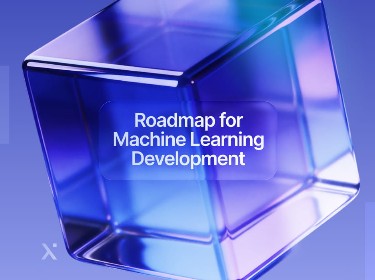With new frontiers in performance and productivity, artificial intelligence is now changing the way we do business, streamlining workflows and increasing revenues.
Artificial intelligence (AI) has already become a notable business buzzword. As a characteristic of the software and physical agents, artificial intelligence gives them the ability to take action, react, and understand language, and outperform humans in singular tasks. Artificially intelligent agents are dynamic as they utilize the contextual data to learn and adapt to new situations.
We all have already experienced the impact of AI on our everyday lives by using Google’s predictive search, learning about the weather from Siri, or having Alexa play our favorite music. However, these examples are only scratching the surface of opportunities brought by AI solutions for business.
AI application in the business context saves time in performing routine administrative tasks, as well as provides tools and new ways to increase customer satisfaction and broaden the customer base. AI consulting for small businesses and big enterprises helps to get AI solutions that are cost-effective, integral to customer engagement, and convenient for mitigating the lack of skilled personnel in an organization.
Read on to learn about the current state of AI in business, the reasons why entrepreneurs should use the technology, its benefits, the top companies that apply it to solve their challenges, and how to adopt it for your business.
Outlook on artificial intelligence
Artificial intelligence is the synergy of a range of tools and technologies that are equipped for sensing, understanding data, extracting insights, and performing tasks based on the knowledge obtained. With the ability to learn from data and adapt over time, it is seen as one of the most efficient solutions for automating business processes and making autonomous decisions. This ongoing capacity for self-improvement is the driving force behind adaptive AI development, which focuses on building systems that can continuously evolve and refine their behavior in response to new data and experiences.
The accumulation of large amounts of data gathered from users through social media, eCommerce, educational and other platforms, and a deeper understanding of how to use this data created strong demand for smart AI systems. Machine learning, knowledge-based systems, and natural language processing are some of its top implementations today.
Knowledge-based systems
Knowledge-based systems or expert systems are some of the most adopted and probably the most successful AI systems for business. As a subset of knowledge-based systems, rule-based systems make use of the set of rules previously modeled by experts to provide support in making difficult business decisions. These systems have the proficiency of human experts. Newer versions of expert systems also include probabilistic relations, such as between cause and effect, augmented by causality and temporal relationships as well.
Natural language processing
Natural language processing (NLP) is an essential AI technology for business operations today. In its simplest form, these systems offer reliable translation in a defined context. Business applications of NLP are many, from solutions for internal collaboration to database searches, from content management to online customer support to e-Commerce.
Most adopted business applications of NLP include content and link analysis of web pages, extraction of specific information from texts, and automated classification. Natural language processing uses machine learning techniques to convert unstructured data from text, audio, and video sources to structured data that can be utilized by decision-makers.
Machine learning
Machine learning is a collection of computational algorithms that can process large amounts of data quickly and “make sense” of that data. This technology leverages learning as a dynamic process, and the algorithms have the capability of getting better at what they do, the more often they do it. One of the most remarkable machine learning techniques is deep learning. Deep learning is the integration of several neural networks capable of learning from unstructured data. Deep learning algorithms have become very efficient and accurate due to the large scale availability of business data and the increase in available computing power.
Artificial intelligence is disrupting existing business models and creating new ones in many industries. According to PwC’s research AI will have a US$15.7 Trillion potential contribution to the global economy by 2030 and up to 26% boost in GDP for the local economies. The key advantages of AI are scalability and continuous improvement capabilities. In terms of business, these advantages will increase corporate productivity, lower the costs, reduce human error, and create an expanding and competitive advantage for enterprises.
Check this smart grocery shopping list running on machine learning technology
Reasons why business entrepreneurs should use AI
![]()
Businesses can utilize AI technology to achieve strategic objectives in figuring out what was wrong with their strategies in the past, making predictions about what will happen in the future, and setting plans on how to achieve better results. In light of these objectives, there are five reasons why business entrepreneurs should use AI. To implement the most advanced, interactive forms of this technology, many are turning to AI copilot development to build intelligent assistants that actively guide strategy and decision-making.
Access to information
AI solutions streamline the processes of identification, retrieval, and utilization of information across the entire enterprise. Timely access to the right information is significant for making informed and collaborative decisions that influence business outcomes.
Generating insights
AI-based business tools can uncover hidden insights in data. Insights are essential for a thorough understanding of cause and effect relations within a business context. Having access to the most valuable insights helps business entrepreneurs make better decisions that enable profitable and sustainable growth.
Corporate foresight
AI can help enterprises leverage data from the past to predict future outcomes. Corporate foresight capability can anticipate the changes early on, suggest the best course of action to meet business requirements, and ensure long-term survival and success of the company.
Business agility
Utilizing AI can help businesses increase their ability to rapidly adapt to the changing market and environmental conditions while maintaining productivity and keeping the expenses to a minimum. Recently, organizations around the world started using cloud computing, business-IT alignment, enterprise architectures, and context modeling to increase their business agility. Artificial intelligence acts as the binding material for these approaches while accelerating the organization’s real-time decision making.
Strategic alignment
AI serves as the connecting mechanism in business – from strategy to execution. Data-driven AI alignment encourages the establishment of business strategies for amping up the performance benchmark of its processes. At the same time, AI can increase enterprise and operational visibility and relate them to preferences, priorities, aims, and needs in a business context.
Benefits of AI for business
![]()
Artificial intelligence in business encompasses a set of computational tools and techniques that enables organizations to gain actionable insights from data, which, in return, increases efficiency, reduces costs, boosts revenue streams, and helps achieve corporate, social, and economic goals.
Increased efficiency
Machines and tools powered by artificial intelligence can outperform people in certain tasks, work around the clock, never sleep, don’t take breaks, and don’t have issues with focusing. They can support your business 24/7 and respond to significant events just at the right moment or answer customers’ requests.
One of the main advantages of AI is its ability to analyze large datasets very quickly as compared to long hours or days it would take a team of human experts to accomplish. Artificial intelligence can also perform repetitive tasks and automate work routines which is particularly useful for small business owners.
Competitive advantage
Data is the new fuel that needs to be processed to make it valuable for the modern digital economy. Enterprises can use AI to instantly crunch vast amounts of data and get better answers to questions relevant to their domains. For instance, a digital content company might need insight into what movies their customers prefer and make accurate predictions on whether customers might cancel the subscription. Retailers may want to know which items sell best at different periods of time throughout the year. Artificial intelligence can provide these forecasts with relatively high accuracy based on historical and contextual data.
Insights mean a competitive advantage for businesses, enabling companies to create better products and services for their customers, reduce the risk of failures, reduce costs, increase operational efficiency, and improve safety and compliance.
Mitigating errors
AI performs as accurately as possible based on the available data. It is not prone to mistakes attributive to human opinions or emotions. However, AI sometimes may form biased decisions if the dataset does not accurately represent the entire population or a variety of cases. For example, Amazon once scrapped a gender-biased AI recruiter tool that picked mostly male applicants from a pool of CVs submitted over several years. The problem was that the CVs in the dataset came predominantly from men.
Improved customer experience
AI solutions for improving customer experience involves using their behavior data to provide products or services that are more appealing to them. For example, the marketing department can predict how select customer groups may react to their marketing message. By evaluating how customers talk to each other, an AI chatbot can recommend phrases and moods that are the best fit with a segment of the audience. The data about customers, their location, favorite products, and social activity can help businesses offer more relevant products and customized experiences.
One of the best use cases of AI used for enhanced customer experience is Netflix’s recommendation engine that is personalized and suggests movies based on individual preference. Similarly, Spotify uses AI to create playlists according to the user’s preferences. Amazon’s Alexa assistant helps prepare shopping lists, create music playlists, send emails, and find basic information. In the travel industry, off-the-shelf AI solutions are available to customers 24/7 in real-time to suggest personalized vacation packages and give updated information about their scheduled itineraries.
Enhanced security
Data security is a burning topic with hacking and security breaches happening on an annoyingly regular basis. When monitoring is being done by people there is always a chance of human factor.
By collaborating with artificial intelligence services providers, you can create tools to prevent data leakage and detect fraud attempts. AI can also incorporate such instruments as machine learning and speech recognition to prevent security violation acts.
According to Statista, the global cybersecurity market size is going to reach $345 billion by 2026 which proves that businesses consider AI to be of great use when protecting sensitive data.
Want to know more about the impact of AI on cybersecurity? Don’t miss this article
Top business functions that could be augmented by artificial intelligence
![]()
“Dig into every industry, and you’ll find AI changing the nature of work.” ― Daniela Rus, director of MIT’s Computer Science and Artificial Intelligence Laboratory.
Enterprises in the new AI-driven reality should continuously seek ways to leverage business data to develop and support fact-based decision making. Our custom software development service providers shortlisted the following areas that could benefit from AI-based decision making:
- Customer-related business functions such as profiling, segmentation, social network analysis, brand reputation management, marketing optimization, and customer satisfaction.
- Supply chain-related business functions such as demand forecasting and dynamic optimization of inventory, pricing, scheduling, and transportation.
- Fraud and risk-related business functions such as capital, operational, credit risk assessment, and detecting fraud from business transactions.
- Public domain-related business functions such as natural resource management, catastrophe prevention and management, energy management, public safety management.
Marketing
Artificial intelligence already helps businesses around the world be more customer-centric and data-driven by devising and executing marketing strategies. AI apps and tools offer greater visibility into customer behaviors, help make relevant offers, and deliver a personalized experience across many channels.
Companies can now precisely segment their customers according to interest or demographics and deliver better advertisements. Chatbot development is making its way to become an industry standard for efficient customer issue management. Furthermore, AI-fueled chatbots can recommend products or services and support sales. AI tools assist marketing teams by analyzing data on customer behavior and provide insights that can help them make timely adjustments to their marketing promotions.
Sales
While direct sales is a profession that can only be performed by people, AI tools provide actionable insights that improve sales operations. These tools also deliver improved sales forecasts, predict customer requirements, and support better communication with customers. AI helps sales professionals keep track of engagement with the customer base in core areas and offers efficient time management.
IT operations
Artificial intelligence in IT operations is one of the most prevalent internal business applications in many organizations. These types of solutions can track errors and analyze logs, as well as automate many routine processes. AI software allows developers to identify issues early on and can suggest a course of action to maintain uptime of their IT systems.
Human resources
Even though human resources deal exclusively with humans, artificial intelligence has made a significant mark in this field. Modern recruitment processes are unimaginable without the involvement of AI. Besides automating repetitive and time-consuming tasks, AI can conduct interviews, classify candidates according to their skills and build large competence pools. These tools help human resource professionals make data-based decisions based on their internal processes.
Accounting and finance
Artificial intelligence is transforming the accounting and finance professions by simplifying and automating most mundane tasks, making data more accurate, and accelerating processes. Advanced AI solutions are able to streamline invoice management, validate clients by checking their credit histories and tax information, and eliminate paper-based processes and workflows that involve dealing with multiple incompatible digital systems. Smart applications can extract data from various sources, consolidate it, and generate reports. Some AI systems can even ensure compliance with internal and external policies. Chatbots can be used to answer frequent questions from customers, including checking their account balances, their account status, due dates for bills, and more.
Learn more about the ways AI is improving the banking systems
How to adopt AI into your business
![]()
Artificial intelligence has the remarkable potential to reshape business in every sector of the global economy. That’s why entrepreneurs need to act now to capitalize on new opportunities. Some companies, however, are utilizing the “wait and see” strategy, which is proving to be very passive with the surge of new players in the market. While some AI applications have an immediate impact on business, others have a snowball effect that is harder to visualize.
In the current state of Al development, companies need to make urgent but clear-headed decisions and quickly react to the possibilities and risks that go hand-in-hand with digital transformation. While there is no definitive recipe, the five elements below are key for attempting AI integration.
Identify the right business use cases
The most basic and important step in adopting AI into an organization is to identify the business use case that has the highest value potential and to align it with the company’s strategy. This step requires the identification of realistic capabilities, accounting for the limitations that AI has in a specific real-world scenario. Identifying the right business use case is a knowledge-intensive element of AI transformation because it requires expertise in both business development and the inner workings of AI technology.
In the short-term, it is advisable to develop use cases that have proven scalable AI technology solutions such as robotic process automation or specific applications of machine learning. For the medium-term, companies can choose use cases utilizing emerging AI technologies that haven’t been proven scalable yet. For the long-term, companies can choose use cases with unproven AI technologies that will have high impact and partner with R&D consulting firms or third-party companies that specialize in the development of AI solutions.
Build up your data ecosystem
Data is a critical business asset for companies that want to join the AI revolution. AI algorithms require large volumes of data for training that often come from multiple different systems and sources in various formats. Companies should identify the sources of their data, build infrastructure for its storage and processing, anticipate the expenses associated with the collection, embrace the risks of erroneous data, and develop strategies for obtaining additional data relevant to its business operations.
The real benefits of data ecosystems become evident when companies diversify the types of data they collect and store. Usually, one type of data can become useful only when combined and analyzed together with the others. For example, the combination of customer sentiment with real-time event geo-data can give business exclusivity and unprecedented customer experience to any brand.
Develop your AI capabilities
The internal capabilities to develop the desired AI solution is the cornerstone of a successful transformation. Only organizations with the right know-how will be able to capture the real value of artificial intelligence. Companies need to foster expert developers to design, implement, deploy, troubleshoot, maintain, and advance their AI initiatives.
In order to develop the full range of capabilities, companies may need to partner with external solution providers that have specific expertise or delegate some of their key operations to other service providers. An agile development approach is essential for companies to move faster through the test and learn cycles.
Integrate AI into your business workflow
Running AI solutions at scale and getting satisfactory results is only a small part of the story. To completely capture the benefits of the use case, companies must redesign business processes and integrate the results into their workflows. Sometimes integration may involve automation, and other times it requires designing channels so that the right data insights reach the right people within the company.
The integration of AI insights into the business workflows requires re-thinking and resetting of human-machine interfaces. A clear distinction is needed to divide tasks between company staff and machines. In an AI-driven world, many job descriptions will need to be revised and updated.
Train your workforce
Adopting artificial intelligence into the business process requires long-term organizational changes. The paradigm of human-machine collaboration is relatively new, and the workforce needs to be apprised and adopted to this mindset. Businesses must provide education about opportunities and challenges of this paradigm to foster new types of collaboration.
Training the workforce may take time, so creating an AI-ready company culture should come early on in the transformation. Special attention should be dedicated to the education of mid-level managers on how to use data-driven insights in their decision-making process.
In an AI-driven business, employees must be retrained to work alongside automated agents. At the same time, some of the developers will need to acquire special skills to support AI-based operations. Throughout these changes, it is important to maintain strong leadership and have a clear organizational vision.
Top 10 most innovative AI companies improving business processes
![]()
Companies such as Amazon, Microsoft, Google, and IBM are the leading companies that provide solutions through their cloud platforms and enable other companies to develop AI applications without the expense of having an in-house team. Smaller companies offer off-the-shelf solutions that can be used to address particular business needs. Below are the top companies offering solutions for business process improvement.
Narrative Science
Narrative Science is a US-based technology company that specializes in data storytelling. The company uses natural language generation (NLG) technology that can translate data into stories. Their products Quill and Lexio help businesses make decisions faster by highlighting the most relevant and interesting information within corporate data.
AlphaSense
AlphaSense created a revolutionary AI-powered search engine that helps investors, banks, and big companies find important information within transcripts, filings, news, and research. The company utilizes natural language processing to expand keyword searches for relevant content and enable management professionals to acquire critical business insights and data with speed and conviction.
Persado
Persado is a marketing language cloud that uses AI-generated language to craft advertising for targeted audiences. Comprising the world’s largest database, with over a million words and phrases tagged and scored for consumer marketing, Persado’s Marketing Language Cloud enables brands to increase acquisition and retention while building long-term consumer relationships.
CognitiveScale
CognitiveScale is an AI software company that builds augmented intelligence solutions for healthcare, insurance, financial services, and digital commerce industries. Their solutions help customers benefit from intelligent, transparent and trusted AI/ML-powered digital systems. CognitiveScale’s solution enables businesses to rapidly build, operate, and evolve intelligent, transparent, and trusted AI systems on any cloud. With their products, businesses increase customer acquisition and engagement, while improving processes like billings and claims.
Vidado
Vidado is a rare enterprise-grade solution for digitizing and enriching data of any quality at the scale and speed of modern business demands. Vidado is an AI platform designed to help enterprise businesses extract and digitize otherwise-inaccessible data. Combined with the largest human-verified dataset in the industry, Vidado delivers automation-ready data in less time and at high accuracy. It can integrate data from virtually any channel, including handwritten documents, increasing paper to digital workflow speeds and accuracy. This cloud-based platform is utilized by leading organizations and companies like New York Life, the FDA, Metlife, and MassMutual.
Verint (Next IT)
Verint Systems is an analytics company founded in 2002. The company develops software, implements business intelligence consulting for customer engagement management, security, surveillance. Their products are designed to assist clients in data analysis, specifically large data sets. Recently, Verint Systems acquired Next IT, a company that develops conversational AI which answers complex questions for businesses and enhances customer experiences. From financial and insurance needs to travel and healthcare, their intelligent products perform tasks and answer questions for tech support, billing, scheduling, purchases, and policy information. The company’s AI systems power natural language business products that are continually enhanced through AI-powered tools that empower human trainers to assess performance and improve end-user satisfaction.
ViSenze
ViSenze is an AI startup that develops advanced visual search and image recognition solutions to help businesses in eCommerce, mCommerce, and online advertising. Using R&D in machine learning and computer vision technology, ViSenze can recommend visually similar items to online shoppers, either on e-commerce platforms when they browse or search by uploading a picture or on content publisher platforms like social media and video networks.
DataRobot
DataRobot‘s AI platform democratizes data science services with end-to-end automation for building, deploying, and managing machine learning models. The platform offers collaboration tools for extracting business value from information to data scientists, business analysts, IT teams, business executives, and analytics professionals.
Big Panda
BigPanda‘s autonomous operations platform helps IT operations, network operations, and development operations teams detect, investigate, and resolve IT incidents faster and more easily. Powered by their trademark Open Box Machine Learning, BigPanda correlates IT noise into insights, automates incident management, and unifies fragmented IT operations. IT companies rely on BigPanda to reduce their operating costs, improve service availability and performance, and de-risk and accelerate their digital transformation initiatives.
Swim.ai
Swim helps organizations transform their business operations by maintaining situational awareness and continuously augmenting human decision-making using the most accurate, relevant insights gathered from processing and analyzing real-time and contextual data. Swim offers Swim Continuum, the first open core, enterprise-grade platform for building, managing, and operating continuous intelligence applications at scale. It provides businesses with complete situational awareness and operational decision support.
Conclusion
The application of AI into businesses is still at its infancy stage, but the adoption is growing fast. Artificial intelligence is finding its place in many business processes, from workflow management to trend forecasts, from customer service to dynamic price optimization. Additionally, this technology is stimulating many innovative business opportunities, providing new business models, and reshaping the way businesses operate. Machine learning for fraud detection services, in particular, is gaining traction, helping companies identify suspicious activities and protect themselves against financial losses.
The real benefits come when AI synergizes with human experience. Artificial intelligence, particularly in business use cases, has to put people at the center and augment the human workforce by automating tedious workflows, simplifying data, and allowing humans to focus on higher-value analysis, decision making, and innovation.
The availability of large and diverse data sets is the central driver for AI in business. The data is available from enterprise resource planning applications, internal databases, third-party providers, and public databases. Additionally, the combination of social media and IoT development adds essential sources of data within enterprises and offers new opportunities for prudent business entrepreneurs.
Embracing AI transformation in business is not an easy task. Companies need a structured approach that begins with identifying business use cases with the greatest potential. They need to build data ecosystems to guarantee the success of AI algorithms. At the same time, companies need to nurture various capabilities and find ways to integrate AI results into their workflows. Finally, employees have to be trained and educated to successfully adopt AI. For these purposes, you can approach reliable service providers delivering artificial intelligence and machine learning consulting services.
The adoption process can be overwhelming and may require a company to adopt a wide range of AI capabilities in a short time. Due to these reasons, it is advisable to acquire the desired capabilities by collaborating with third-party AI solution providers such as PixelPlex. Learn how our artificial intelligence and big data consulting company can help you translate big data and disparate digital assets into business growth triggers by offering AI development services.




